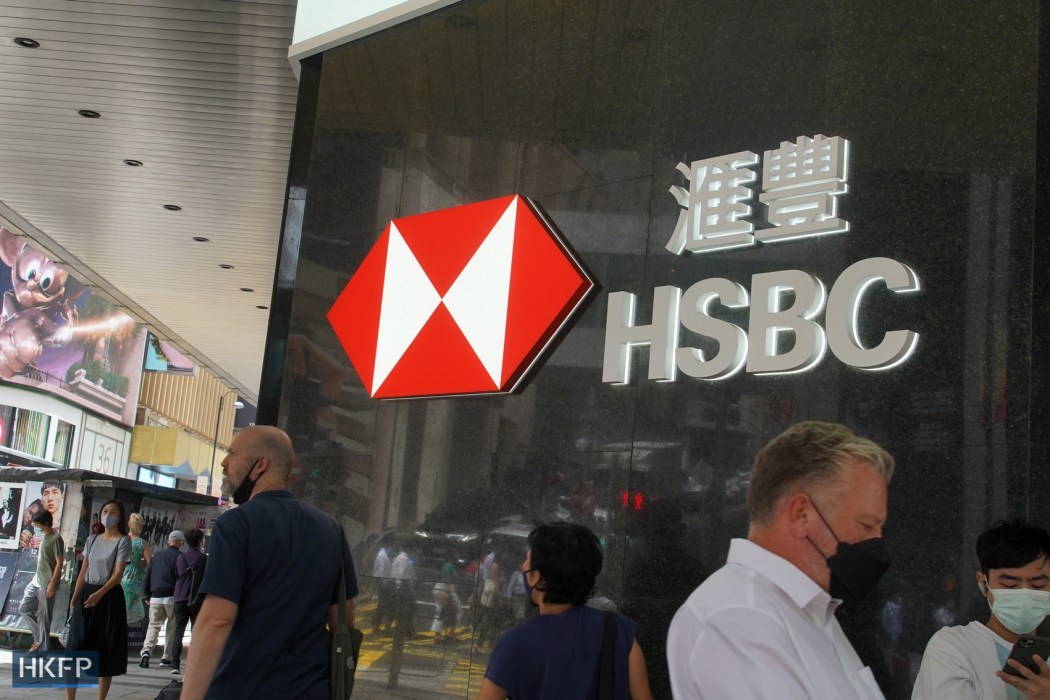An inquiry by UK MPs and peers has concluded that British banking giant HSBC has been complicit in rights abuses in Hong Kong by denying Mandatory Provident Fund (MPF) pension payouts to those who went to live abroad.

Some 144,500 people have left Hong Kong for the UK in the two years since London launched an emigration scheme for holders of British National (Overseas) passports. The pathway was launched after Beijing enacted the national security law in the city after the 2019 pro-democracy protests and unrest.
Anyone who permanently leaves the city is normally entitled to make a one-off withdrawal of the MPF payments they have amassed.
See also: Banks accused of Beijing-backed ‘asset grab’ as Hongkongers in UK denied access to pension savings
The All-Party Parliamentary Group report said that “British banks have, as a consequence of their support of the National Security Law and by freezing accounts and withholding access to Hongkongers pensions, contributed to the suppression of principles set out in the Universal Declaration of Human Rights and Guiding Principles on Business and Human Rights.”

The report referenced HSBC’s freezing of pro-democracy former lawmaker Ted Hui’s bank account in December 2020 amid a police probe into alleged money laundering. The bank later said the account was “restricted” but not frozen for “commercial reasons.”
The report also took aim at Britain’s Standard Chartered bank for its declared support of the national security law.
BNO not recognised
In March 2021, the MPF Authority declared that, since the Hong Kong government no longer recognised BN(O) passports, MPF clients “cannot rely” upon them or the associated visa as evidence to support applications for early withdrawal of their pensions.
However, the MPs’ report said the UK Home Office could provide extra documentation to banks as proof of permanent departure for Hongkongers. “The Home Office, and other relevant organisations need to consider this issue in greater detail and consider possible routes to ensuring Hongkongers can access their MPF funds,” it read.
It added that Magnitsky-style targeted sanctions should be enacted against top Chinese and Hong Kong officials.
HSBC told The Guardian that “like all banks, we have to obey the law, and the instructions of the regulators, in every territory – including Hong Kong – in which we operate.”
When approached for comment, the MPF Authority referred HKFP to its 2021 policy on BN(O) passports and said: “MPF trustees must observe Hong Kong laws and regulations when operating MPF schemes including processing applications for withdrawal of MPF benefits.”
Correction 13/2: A previous version of this article said the MPF Authority statement was from March 2020 – in fact, it was published in March 2021. We regret the error.
Support HKFP | Policies & Ethics | Error/typo? | Contact Us | Newsletter | Transparency & Annual Report | Apps
Help safeguard press freedom & keep HKFP free for all readers by supporting our team

LATEST FROM HKFP
HKFP has an impartial stance, transparent funding, and balanced coverage guided by an Ethics Code and Corrections Policy.
Support press freedom & help us surpass 1,000 monthly Patrons: 100% independent, governed by an ethics code & not-for-profit.










